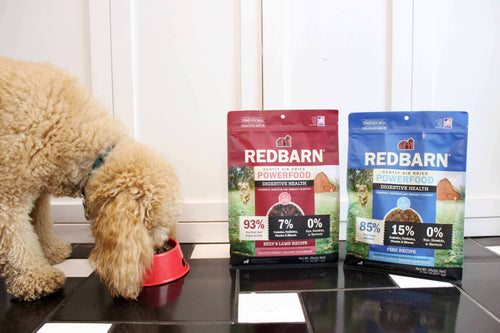
6 Proven Tips to Help You Summer-Proof Your Dog
Share
Dogs love summer and see it as a great time to explore the outdoors. Whether you’ll be staying at home this summer or heading further afield, there are many things you can do to ensure your dog has a fantastic time and remains safe. These tips include ensuring they remain hydrated, protected from the dangers of sunshine and don’t gain access to toxic plants and lungworm that could kill them. Read on for more information about keeping your dog happy and safe this summertime.
Defeating sunburn
Just like humans, dogs can be affected by being exposed to too much sun. You should ensure they get an adequate amount of shade during the hottest days of the year, and they do see to be burnt you should use natural treatments like aloe vera. If symptoms persist, you should consult your vet as the sun can cause skin cancer in dogs too. Short-haired, white-furred, hairless and light-colored dogs are at particular risk. More information on preventing dog sunburn is available here.
Lungworm and artificial grass
More dog owners are investing in artificial grass to help their dog avoid being affected by lungworm, as lungworm can be fatal. Snails and slugs are famous sources of lungworm, so you should try to ensure your dog has no contact with them. You should also keep an eye on them when you’re out and about to see if they swallow something they shouldn’t. There are many reputable companies that can supply you with high-quality, affordable artificial grass for dogs like Forever Green Lawns.
Look out for toxic plants
It’s wise to find out which plants are deemed toxic for your dog. Knowing which plants to remove from your garden and pull your dog away from when you’re out walking is key to your dog’s safety. Some plants are more dangerous than you might think, with apple seeds posing a significant risk. If you don’t want to get rid of toxic plants, you could make it hard for your dog to access them. You can download a list of toxic plants to dogs here to check if you have any dangerous plants in your garden.
A good supply of water
The importance of hydration should not be underestimated. Dogs need water just like humans do, and they can become dehydrated during the hottest days of the year. Make sure a constant supply of water is always available whether you’re at home or out. Grooming is also a good idea. Long hair can make your dog too hot and make them uncomfortable. It can also cause accidents when it gets snagged. You may also wish to trim your dog’s claws as these can also become snagged with ease. Regular brushing can also stop your dog from overheating during when the temperature rises. Don’t forget to invest in a dog tag with your contact details in case your dog does become separated from you at any point.
Keeping them cool in the heat
Why not invest in a kit for your dog if you’ll be taking them on many excursions this summer? A kit might include treats, toys, food and bowls and will make life easier for you as head out on your travels. Some dog owners are investing in chilled gel packs and ice. These are placed under the collar and help keep pets cool. Special jackets are also available for temperature-conscious dog lovers. There are also special boots on the market that can protect their paws from hot sand, glass and other hazards.
The value of daily exercise
It’s also important to ensure your dog enjoys regular exercise. Your dog is likely to suffer from more aches and pains if they head out on a weekend adventure after many days of inactivity. Sudden bursts of activity can harm your dog, so do ensure they get the chance to run around during the week as well as the weekend. Removing hazards from your garden is a great way to ensure your dog has a fantastic summer.
All data and information provided on this site is for informational purposes only and reflects the views of the authors alone. This information may not reflect those of the organization. Redbarninc.com makes no representations about the accuracy, completeness, timeliness, suitability, or validity of any information on this site. Redbarninc.com will not be liable for errors, omissions, or delays in this information or any losses, injuries, or damages arising from its display or use. All information provided is on an as-is basis. Please note that each situation is different. You should always consult your veterinarian if you have any questions about your pet’s health.



